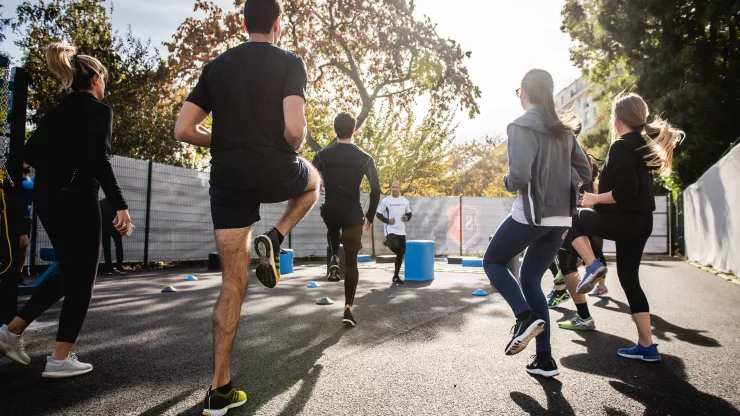Yoga and Its Impact on Mental and Physical Health
Yoga is an ancient practice that has been around for thousands of years. It is a holistic approach to wellness that encompasses the mind and the body.
Practicing yoga regularly can enhance physical strength, flexibility, and endurance, while also reducing stress and improving mental clarity.
In this article, we explore the many benefits of yoga and how it can positively impact your mental and physical health.
Jump to Section
How Yoga Can Positively Impact Your Mind and Body
The Connection Between Mental and Physical Health
The mind and the body are interconnected, and any disturbance in one can affect the other. Stress, anxiety, and negative thoughts can cause physical symptoms such as headaches, muscle tension, and fatigue.
Similarly, physical ailments can also affect mental health and lead to depression or mood swings.
Explanation of the Mind-Body Connection
The mind-body connection is the concept that our thoughts, feelings, and emotions can influence our physical health.
When we experience stress or negative emotions, our bodies release hormones such as cortisol, which can cause physical symptoms such as high blood pressure, inflammation, and weakened immune systems.
Practicing yoga can help to reduce stress and negative emotions, and in turn, improve physical health.
The Science Behind Yoga’s Effects on Mental Health
Studies have shown that practicing yoga can help to alleviate symptoms of depression, anxiety, and stress.
Yoga has been found to increase the production of feel-good hormones such as serotonin and reduce the production of stress hormones such as cortisol.
Additionally, the deep breathing and relaxation techniques used in yoga can help to calm the mind and improve overall mental health.
The Physical Benefits of Yoga
Improved Flexibility and Range of Motion
Yoga involves a series of poses and stretches that can help to improve flexibility, range of motion, and joint health. Regular practice can help to reduce the risk of injury, improve posture, and enhance athletic performance.
Increased Strength and Endurance
Many yoga poses require strength and stability, which can help to build muscle and increase endurance. Practicing yoga regularly can also improve cardiovascular health and increase lung capacity.
Reduced Pain and Inflammation
Yoga has been found to be effective in reducing chronic pain and inflammation. Certain poses and stretches can help to stretch and strengthen muscles and alleviate pain in the joints.
The Mental Benefits of Yoga
Stress Reduction and Improved Mood
Yoga has been found to be effective in reducing stress and improving mood. The deep breathing techniques used in yoga can help to calm the mind and reduce feelings of anxiety and stress.
Increased Mindfulness and Focus
Yoga requires focus and concentration, which can help to improve overall mental clarity and focus. Practicing yoga can also help to improve mindfulness, which is the practice of being present and fully engaged in the current moment.
Improved Sleep Quality
Yoga has been found to be effective in improving sleep quality. The relaxation techniques used in yoga can help to calm the mind and improve the quality of sleep.
The Different Types of Yoga and Their Benefits
There are many different types of yoga, each with its own unique benefits. Here are some of the most popular types of yoga and their benefits:
Hatha Yoga
Hatha yoga is a gentle and slow-paced style of yoga that focuses on breathing and relaxation techniques. It is a great style for beginners or those looking for a more relaxed practice.
Vinyasa Yoga
Vinyasa yoga is a more dynamic style of yoga that focuses on flowing from one pose to the next in a sequence. It is a great style for those looking for a more challenging practice.
Bikram Yoga
Bikram yoga, also known as hot yoga, is practiced in a heated room and involves a series of 26 poses. It can help to improve flexibility, increase endurance, and reduce stress.
Restorative Yoga
Restorative yoga is a gentle and relaxing style of yoga that involves holding poses for an extended period of time. It is a great style for those looking to reduce stress and improve overall relaxation.
Comparison of Different Types of Yoga and Their Benefits
| Type of Yoga | Benefits |
|---|---|
| Hatha Yoga | Gentle and relaxing, great for beginners |
| Vinyasa Yoga | Dynamic and challenging, great for building strength and endurance |
| Bikram Yoga | Helps to improve flexibility, endurance, and reduce stress |
| Restorative Yoga | Gentle and relaxing, great for reducing stress and improving relaxation |
How to Get Started with Yoga
Choosing a Yoga Style That Fits Your Needs
When choosing a yoga style, it’s important to consider your goals, fitness level, and personal preferences.
If you’re looking for a more gentle practice, Hatha or Restorative yoga may be a good fit.
If you’re looking for a more challenging practice, Vinyasa or Bikram yoga may be a better fit.
Finding the Right Yoga Studio or Instructor
It’s important to find a yoga studio or instructor that is experienced and knowledgeable. Look for a studio or instructor that is certified and has experience teaching the type of yoga you are interested in.
Essential Yoga Equipment for Beginners
For beginners, all you need to get started with yoga is a yoga mat and comfortable clothing that allows for movement.
Tips for Developing a Consistent Yoga Practice
To develop a consistent yoga practice, it’s important to set realistic goals and create a routine that works for you. Start with a few minutes a day and gradually increase the amount of time you spend practicing.
Combining Yoga with Other Health Practices
Yoga and Meditation
Combining yoga with meditation can help to improve overall mental health and reduce stress. The deep breathing and relaxation techniques used in yoga can help to calm the mind and improve focus, while meditation can help to further reduce stress and improve overall relaxation.
Yoga and Nutrition
Combining yoga with a healthy diet can help to improve overall health and wellness. Eating a diet rich in fruits, vegetables, lean proteins, and whole grains can help to improve energy levels and reduce inflammation.
Yoga and Physical Therapy
Yoga can be a great complement to physical therapy. The stretching and strengthening techniques used in yoga can help to improve mobility, stability, and overall physical health.
Comparison of Yoga Combined with Other Health Practices
| Health Practice | Benefits |
|---|---|
| Yoga and Meditation | Improved mental health, reduced stress, improved focus |
| Yoga and Nutrition | Improved overall health and wellness, increased energy levels |
| Yoga and Physical Therapy | Improved mobility, stability, and overall physical health |
Frequently Asked Questions About Yoga and Its Impact on Health
Is Yoga Suitable for Everyone?
Yes, yoga is suitable for people of all ages and fitness levels. However, it’s important to talk to your doctor before starting a new exercise program, especially if you have any chronic health conditions.
Can Yoga Improve Chronic Health Conditions?
Yes, yoga has been found to be effective in reducing symptoms of chronic health conditions such as arthritis, high blood pressure, and anxiety.
How Often Should I Practice Yoga to See Results?
Practicing yoga a few times a week can help to see results, but it’s important to establish a consistent practice to see long-term benefits.
What Should I Expect During a Yoga Class?
During a yoga class, you can expect to engage in a

With a deep passion for personal development, Ben has dedicated his career to inspiring and guiding others on their journey towards self-improvement.
His love for learning and sharing knowledge about personal growth strategies, mindfulness, and goal-setting principles has led him to create My Virtual Life Coach.
Contact Ben at [email protected] for assistance.




